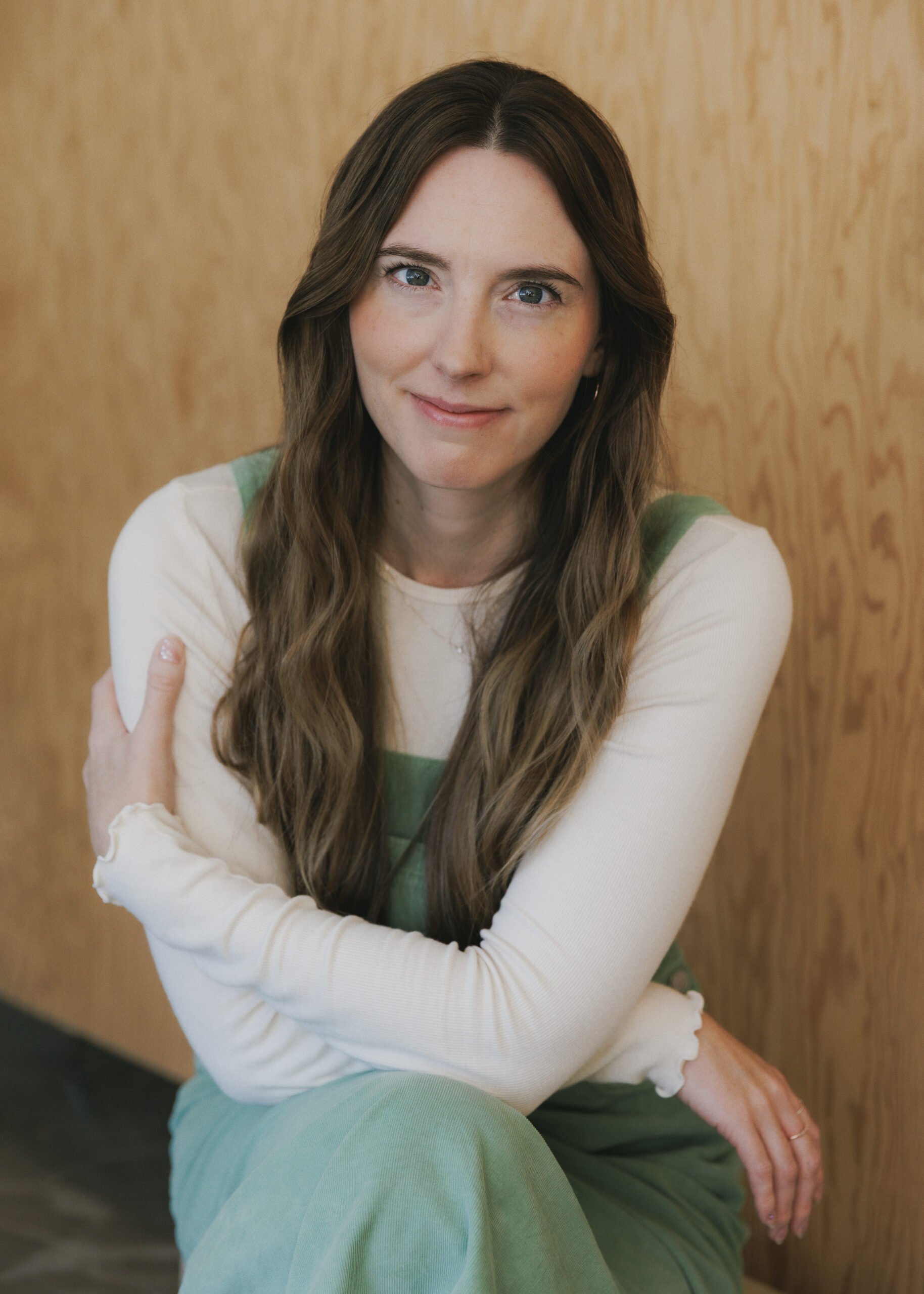Somatic and trauma-informed psychotherapy and counselling for individuals navigating trauma, emotional overwhelm, and patterns that feel hard to shift through talk alone.
a therapy space for you
Trauma is what we hold inside in the absence of an empathetic other. Trauma is anything that leaves you feeling overwhelmed, unsafe, or powerless. It can affect how you feel about yourself, your body, and your relationships, even long after the event has passed. Death of a loved one, challenging relationships, infertility, pregnancy loss, systemic oppression, illness or even childhood wounds can leave you feeling anxious or disconnected. Perhaps you feel hurt, low, discouraged, have difficulty staying present, or are struggling with low self-worth.
It is often the case that our learned way of coping involves moving away from pain. At the heart of our work is the desire to accompany you to feel what was perhaps once not okay to feel. Everwell will serve as a safe place for you to practice being with what is real, hard and true, knowing that this time, you are not alone. We’re here to support you. Our areas of practice include:
infertility and reproductive trauma
In the beginning of one’s journey to parenthood, there may have been so much joy and excitement for the anticipation of pregnancy. As months or years go by, these feelings may have transitioned to hopelessness, despair, anxiety, and frustration. The emotions that surround fertility decisions are real and can feel overwhelming at times.
Perhaps your journey requires invasive fertility treatments such as IVF or miscarriage supports. Whether you are just starting to explore fertility options, in the midst of treatment, or navigating the complex emotions of unsuccessful attempts, counselling can offer a safe and supportive space where you can express your feelings, fears, and hopes.
Read more here
birth trauma
Perhaps you experienced birth trauma and now your parenting journey looks different than what you expected. There are many factors – both physical and emotional – that can contribute to birth trauma such as a birth experience that was not what you hoped for, birth complications, your baby or you suffering a birth injury, or not receiving the care or support you expected during the birth. The silence of birth trauma can be very isolating and can lead to problems that can impact parts of the parenting journey and to our sense of self.
Read more here
childhood trauma
The relationships within our family powerfully shape who we are and how we feel about ourselves. Betrayals in early relationships can have several consequences: a belief that relationships are unsafe, a belief that you do not matter, difficulty managing emotions or a tendency to blame yourself. This can lead to difficulty maintaining close relationships, having a negative view of yourself, difficulty saying no or the need to control people and situations, difficulties with sexual intimacy, impulsiveness, depression or anxiety that you suspect relate to your past, perfectionism or people-pleasing. When you work on healing, it is important that you go at your pace with gentle encouragement to come to terms with what happened. In session, we pay attention to the sensations, memories, and emotions that get activated. Together we facilitate the movement of difficult emotions in the container of a safe connection.
intergenerational trauma
Intergenerational trauma refers to the impact of trauma from one generation to the next. When trauma experienced by individuals or communities in the past continues to impact subsequent generations through various systems. Ancestral strengths and wisdom can also be passed on from one generation to the next, and we can have embodied ancestral wisdom. Understanding intergenerational trauma helps to bring to light the complex and interconnected nature of the impact of trauma. Understanding the patterns and history of trauma considers harm beyond the family structure and highlights the role of oppression on families’ nervous systems.
identity and self-esteem
Identity is a sense of self that’s created by memories, experiences, relationships, and values. Self-esteem refers to our feelings of self-acceptance. Self-acceptance is intimately connected to an individual’s relationship with themselves and their deficiencies and weaknesses. It is very much a sense of allowing ourselves to be who we are and accepting our self-worth. Changing thoughts alone is unlikely to be sufficient to change our underlying identity statement. Instead in counselling we can learn to quiet the inner critic and come into contact with parts of ourselves that have been frozen.
grief and loss
Loss is an experience where there is a change in circumstance, perception, or an experience where it would be impossible to return to the way things were before. Grief can be more broadly defined as the distress that occurs when one’s existing assumptive world is lost because of a significant life-changing event. A loss can be death related or non-death related. Grief is a normal, adaptive response to an experience of loss. Grief counselling involves tending to the pain and exploring ways to reduce suffering.
Read more here
anxiety
You may be constantly worrying about how you come across, feeling stressed all the time, unable to relax and feeling tightness in your chest or always have an upset stomach. In counselling together we will track anxiety and sensations in the body. We practice anxiety regulation together in session to develop increased capacity to tolerate and contain complicated feelings.
depression
Depression is often a result of an ongoing shutting down response. It is a nervous system state we sometimes move into after feeling overwhelmed by what is around us, memories, or big feelings. Depression can be seen as the last coping mechanism to get away from what has hurt us, from what is painful, or what we no longer can withstand. In a depressed state, our body-mind believes it is protecting us from experiencing more pain. To help your depression in counselling, we will explore your story, make connections between past, present and future experiences, uncover new truths, and start healing and resolving what is keeping you down.
postpartum
The journey to parenthood is a transformational experience which effects our physical, emotional, social and spiritual selves. The experience can be empowering, exciting, scary or even traumatic.
Common experiences of postpartum depression and anxiety include:
- unwanted or scary thoughts
- feelings of guilt, worthlessness, or hopelessness
- outbursts of crying or strong feelings of sadness, anger, or resentment
- excessive worry or fear (often related to the baby’s health)
- sleep deprivation and difficulty sleeping (beyond the normal disruptions that come with being a new parent/caregiver)
- withdrawing from family and friends or the inability to connect with your partner
- thoughts of death or suicide
- difficulty integrating a traumatic birth experience: flashback memories, nightmares, numbness, feeling like you are detached from your body, or an avoidance of any trigger that may remind you of the scary experience
You will not always feel this way and do not have to suffer by yourself. In therapy we can make a plan and get you on track to feeling like yourself again.

our approach to healing
Trauma and stress have a profound impact on both the mind and body. At everwell, we approach therapy from an attachment-based, trauma-informed, somatically-oriented perspective. This means that we attend to emotions, experiences, relationship patterns and bodily felt sensations throughout the entire process.
Our somatic AEDP therapy provides a compassionate, evidence-based pathway to processing and releasing emotions, empowering you to reclaim your inner sense of safety, resilience and wholeness. Our therapy includes:
- Accelerated Experiential Dynamic Psychotherapy (AEDP)
- Somatic Experiencing (SE)
- Internal Family Systems (IFS)
- Attachment-based Therapy
- Mindfulness-based Therapy
hi, i'm Katelyn
Katelyn Bonetti (she/her): I’m a registered clinical counsellor in South Surrey – White Rock, British Columbia. I offer in-person or virtual counselling to individuals living in BC.
read my story
As someone who has struggled with overwhelming emotions, self-confidence and anxiety in the past, I know that change happens when we are in the presence of empathetic and emotionally present other. Whatever life challenges you are navigating, my hope is to create a safe and non-judgemental space to experience the parts of you that want to be seen.
I base my approach on evidence-based, trauma-informed, and emotion-centred practice. My therapeutic orientation is Accelerated Experiential Dynamic Psychotherapy (AEDP), incorporating concepts from mindfulness-based, body-based, and internal parts work theories. Within us exists a whole host of feelings, sensations, and wisdom. Sometimes our inability to feel our feelings means our bodies have to scream in order to get some attention. As a result, we may find ourselves feeling disconnected and experiencing symptoms of anxiety or depression. Much of our work together will be about slowing down to notice and experience emotions in a new and corrective way. I also believe that understanding the context in which harm has occurred (familial, cultural, societal, etc.) is a necessary step towards true healing and transformation.
We may be good fit if you:
- are unable to access, manage or understand your emotions
- are open to explore some things from your past in a safe and contained way
- feel stuck in patterns or cycles that aren’t serving you or the relationships in your life
- feel disconnected from your sense of self and desire more meaning and authenticity
Walking alongside another human to witness their deepest joys and sorrows is a privilege that I do not take lightly. I am honoured each time an individual chooses to develop a trusted relationship with me. I bring with me my own experience of infertility, miscarriage, a traumatic birthing experience, and postpartum anxiety. I welcome and proudly support folx from all communities, backgrounds and cultures.
see my certifications, education and additional trainings
Registered Clinical Counsellor, BC Association of Clinical Counsellors
Master of Counselling, City University in Vancouver
AEDP Level 1 Certification – facilitated by AEDP founder, Diana Fosha, PhD
Birth and Reproductive Trauma Certificate – Canadian Perinatal Mental Health Trainings
Treating the Psychological Impact of Infertility (CE credited course) – presented by Koser, K., PhD, LPCC, LPC
ADHD Certified Clinical Services Provider (ADHD-CCSP) Certification (CE credited course) – PESI Canada
Certified Clinical Trauma Professional (CCTP) (CE credited course) – PESI Canada
Certified Grief Informed Professional (CGP) (CE credited course) – PESI Canada


ready to take the next step?
If you’re interested in therapy, click below to request your free 15-minute consultation. You can also email any questions to: katelyn@everwell.ca
Based in South Surrey – White Rock, BC.
